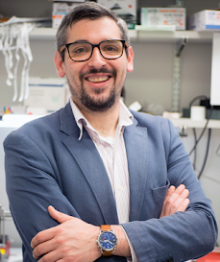HIV infection of the brain can cause problems with cognitive functions like decision making and memory, as well as problems with movement. Some degree of these problems are seen in approximately 40% of individuals living with HIV. These problems are worse when HIV infection occurs early in life, for example, when the virus is transmitted from mother to child. One way that we can understand how HIV causes these problems after exposure in infancy is to use an animal model.
Here, the researchers propose to use a rare and valuable resource, brains collected from monkeys that were exposed to virus early in life. These brains have already been collected as part of a study developing vaccines for HIV. This will provide a unique opportunity to use this precious resource to advance our knowledge of HIV effects on the developing brain. They will perform MRIs on these brains to determine how virus infection altered brain structure. Through these experiments, they will determine how different strains of virus impact the brain, and also determine how medications used to treat HIV might protect against this brain damage. By examining these brains, the researchers aim to generate a model that would allow us to test new therapies to minimize the impact of HIV on the developing brain. This builds on the existing strengths in HIV research in the Washington, DC area, and will open the door to new projects and funding opportunities to further examine HIV associated cognitive problems during brain development within the Washington, DC research community.


